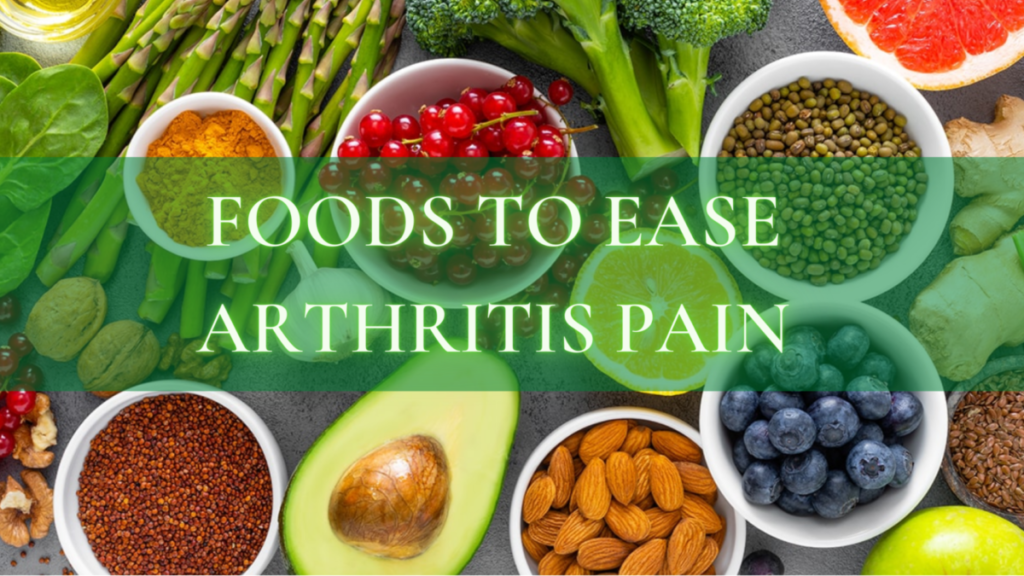Oleh Dr Tony Setiobudi BMedSci, MBBS, MRCS, MMed (Ortho), FRCS (Ortho)

“Apakah ada diet khusus untuk arthritis?” Pertanyaan ini sering kami dengar dari para penderita arthritis. Diet anti-inflamasi dapat membantu melawan peradangan dan memperbaiki nyeri sendi serta gejala lainnya.
Apa itu diet anti-inflamasi? Pada dasarnya, ini adalah pola makan yang mengurangi peradangan dengan mengonsumsi makanan anti-inflamasi dan menghindari makanan yang memicu peradangan. Sebelum kita melanjutkan, kita perlu memahami secara dasar apa itu peradangan. Ketika mendengar kata peradangan, Anda mungkin membayangkan lutut yang bengkak, pergelangan kaki memar, atau siku tergores. Itu adalah tanda peradangan akibat trauma pada tubuh, namun sebenarnya ada lebih dari itu. Peradangan kronis jangka panjang, seperti pada rheumatoid arthritis atau kanker, terjadi di dalam tubuh dalam jangka waktu panjang, sering kali tanpa gejala yang terlihat.
Kabar baiknya adalah, salah satu cara paling ampuh untuk melawan peradangan ada di lemari es Anda—bukan di dalam obat-obatan. Makanan yang Anda konsumsi memengaruhi peradangan, dan karenanya juga memengaruhi kesehatan Anda. Mengikuti diet anti-inflamasi adalah salah satu cara termudah untuk meningkatkan kesehatan kita.
Penelitian menunjukkan bahwa apa yang Anda makan dapat memengaruhi kadar C-reactive protein (CRP) – penanda peradangan dalam darah Anda. Memilih makanan anti-inflamasi yang tepat memungkinkan Anda mengurangi nyeri dan peradangan. Diet ini tidak akan menyembuhkan arthritis, namun merupakan cara yang efektif untuk mengontrol gejala, menjaga berat badan sehat, dan mengurangi risiko masalah kesehatan lainnya.
Makanan yang Harus Dikonsumsi
Berikut daftar makanan yang dapat mengurangi risiko peradangan:
Buah-buahan.
– Konsumsi buah-buahan yang kaya antioksidan. Ini adalah buah-buahan berwarna biru tua, ungu, atau merah seperti ceri dan plum.
– Mengonsumsi buah berserat seperti apel dan pir juga sangat baik.
Sayur-sayuran.
– Perbanyak konsumsi sayuran berdaun gelap seperti bayam, collards, dan kale.
Biji-bijian utuh.
– Biji-bijian utuh seperti oatmeal dan quinoa kaya akan serat.
Kacang-kacangan, biji-bijian, dan lemak sehat.
– Selai kacang alami, minyak zaitun, almond, biji chia, dan biji rami adalah bagian penting dari rencana makan sehat ini.
Ikan.
– Ikan, terutama salmon, merupakan makanan anti-inflamasi terbaik karena kandungan lemak tak jenuh dan asam lemak omega-3-nya.
Kacang-kacangan dan polong-polongan.
– Contohnya adalah kacang dan lentil, yang tinggi serat dan protein, membantu Anda merasa kenyang lebih lama sekaligus mengatur sistem pencernaan.
Perlu diingat bahwa setiap tubuh berbeda. Misalnya, kacang termasuk anti-inflamasi, namun jika Anda alergi, jangan mengonsumsinya.
Makanan yang Harus Dihindari
Anda juga dapat mengurangi arthritis dengan menghindari makanan dan minuman yang memicu peradangan dalam tubuh seperti:
- Daging olahan. Daging ini tinggi lemak jenuh yang memicu peradangan, seperti sosis, ham, dan salami.
- Gula rafinasi seperti minuman ringan, kue, permen, dan es krim.
- Lemak trans. Sebagian besar ditemukan pada makanan yang digoreng, makanan cepat saji, dan makanan panggang komersial.
- Karbohidrat olahan. Utamanya adalah produk tepung putih termasuk gluten, nasi putih, roti putih, dan pasta.
- Alkohol
Pola makan bukan satu-satunya faktor penyebab peradangan, namun dapat membantu mengurangi atau mencegah masalah tersebut memburuk. Ini tidak boleh dianggap sebagai penyembuhan ajaib, tetapi sebagai pilihan gaya hidup yang dapat meningkatkan kesehatan Anda dan harus menjadi bagian dari rencana perawatan Anda.

Dr Tony Setiobudi adalah Dokter Spesialis Bedah Ortopedi dan Tulang Belakang di Rumah sakit Mount Elizabeth (Orchard), Singapura. Beliau menangani berbagai masalah tulang, sendi, otot, dan ligamen pada orang dewasa maupun anak-anak. Beliau memiliki minat khusus dalam penanganan saraf terjepit dan masalah tulang belakang seperti nyeri punggung dan leher, skoliosis, kifosis, tumor dan infeksi tulang belakang, cedera saraf tulang belakang, patah tulang akibat osteoporosis, stenosis spinal, dan saraf terjepit (slipped disc).





